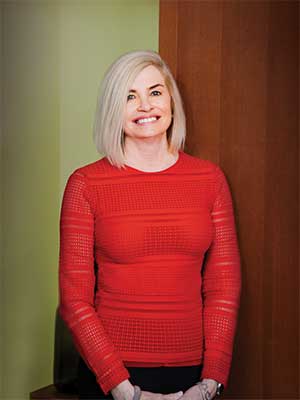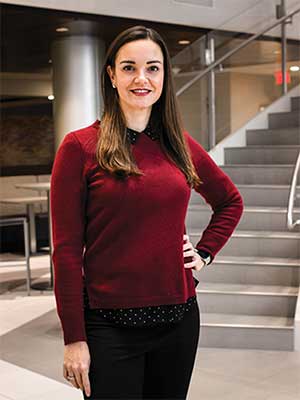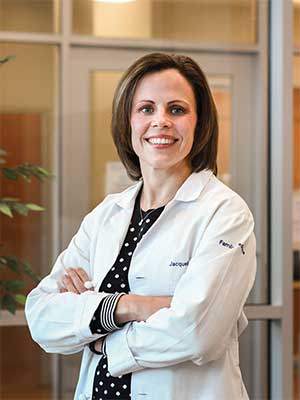Heart Health Champions
The region’s top heart experts share their insight on the latest advances in heart care and the best ways to live a heart-healthy lifestyle.

Brought to you by Main Line Health Lankenau Heart Institute
7 Habits for a Healthy Heart
Heart health can be impacted by many factors—from diet to stress. Linda Bullock, DO, a primary care physician at Main Line Health, shares why you’re never too young to prioritize your heart—plus a simple framework for getting started.
What exactly is a cardiac electro-physiologist? Electrophysiologists specialize in treating different types of heart-rhythm disorders and irreg-ular heartbeats, the most common be-ing atrial fibrillation or AFib. Some of these disorders can be controlled with medication, others require intervention. Electrophysiology is still a field that is constantly evolving. It’s a specialty that presents unique challenges that I really enjoy. I love the combination of practicing medicine and working with my hands to do procedures such as pacemaker implantation and cardiac ablations.

Brought to you by Penn Medicine Heart and Vascular Center
Finding Hope After a Diagnosis
Heart disease is serious, but it’s also more treatable than ever before. Penn Medicine’s Joyce W. Wald, DO, says new cutting-edge treatments and therapies are helping patients with advanced heart failure extend their lifespans, live more comfortably and, in some cases, even reverse their heart disease.
What led you to focus on advanced heart failure? My mom is a physician and my identical twin sister is also a cardiologist in the Lehigh Valley, so medicine runs in the family. In medical school, my sister and I had a wonderful cardiologist professor who became a mentor and made me con-sider the field more seriously. Likely many kids in our class went into cardiology because of him. And it’s a fascinating field—you can really help people both prevent disease and, if they develop end-stage heart failure, increase their lifespan.

Brought to you by Doylestown Health
Risk Reduction 101
While heart disease is on the decline overall in the U.S., rates are still on the rise for women. Doylestown Hospital’s Maryann Williamson, MD, FACC, discusses why that’s the case and what women can do to stay healthy.
What is a common misconception you see about heart disease? Many women fail to realize that more women die of heart disease than men right now. Over the last couple of decades, we’ve made great inroads into mortality, but most of that has been with men, while women are still on an increase for their risk.

Brought to you by Crozer Health
Heart Health’s Overlooked Risk Factors
We know we’re supposed to eat right and exercise, but is there anything else we could be doing to prevent heart disease? Crozer Health’s Jacqueline L. Scheier, DO, shares some of the often-underrated risk factors—from stress to sleep—and offers practical advice for building a healthy routine.
Do you need to see a cardiologist if you’re concerned about preventing cardiac disease? Not always. Starting with a primary care doctor is a good stepping stone for someone looking to improve their cardiac health. Your primary care physician is typically more accessible than a cardiologist and in-tune to your individual needs. As a family physician, I enjoy work-ing with people to try and achieve their health care goals, whatever that may be, and I love coming up with a reasonable plan for patients and then working with them to troubleshoot areas that are causing difficulty to help them find success. And being reasonable is key—I’m not going to try to convince someone who hasn’t once gone to the gym to all of a sud-den run a daily 5K, but what can you do? Can you track your steps, or maybe set aside 10 minutes at lunch to walk around the block?
